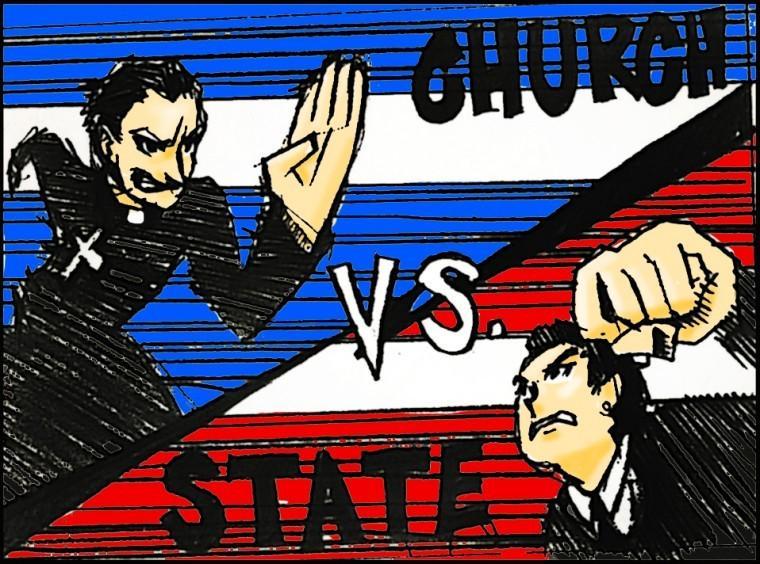Human beings are inherently suspicious.
For example, when a girlfriend or boyfriend is seen talking to a member of the opposite sex, it is often assumed they have feelings for that so-called “friend” of theirs.
The same goes for a teacher praying for the success of her students, or a coach praying for the safety of his players.
Activists have seen this as an act of the government endorsing one religion over another, and this mindset has caused an attack on religious rights, specifically prayer in public schools.
The problem is that they’re getting what they demand, and their list of demands will be as long as we let it.
Last week, Flomaton High School in Alabama received a letter from the Freedom from Religion Foundation (FFRF) after reciting a prayer over the PA system at its football game, as was tradition.
But the FFRF cares little about the people of Flomaton High School’s traditions and demanded the school district undergo “an immediate investigation [in order] to stop any and all prayers occurring before Escambia County Public Schools athletic events,” according to NorthEscambia.com, the county’s online newspaper.
The school district complied and implemented “a ban against facility and students from participating in or leading prayer at school sponsored events.”
Nothing is wrong with a few words that are meant to be kind and encouraging. And nothing says students are forced to pray – such a thought is asinine.
Why can’t these people either ignore the prayer, or accept it as a nice gesture?
Prayers are not harmful – they do not break bones, like sticks and stones.
These types of individuals who possess such an aggressive audacity to seek conflict with religious practices have gone too far, and it has suppressed religious rights.
Today, as interpreted from the establishment clause, students are allowed to pray in the classroom, but only if they arrive early enough and pray in silence.
They are allowed to pray on school buses, but only if they can concentrate over the noise.
They are allowed to pray in the hallway – assuming they’re coordinated enough to dodge other students with their head down.
So, yes, you are allowed to pray as long as you pray in the right place at the right time – and remain unseen and unheard like a ghost – to avoid offending someone who will think the government is trying to infect them with religion.
Believe it or not, it happens.
Sixteen-year-old Jessica Ahlquist decided the poster hanging in her Cranston, R.I., high school for 49 years offended her because a prayer was on it, and she doesn’t believe in God.
The poster was taken down this past January after a federal judge ruled its presence unconstitutional.
Life is good if your name is Jessica Ahlquist – she sees nothing she doesn’t want to.
If you’re religious, not so much.
Every day religious people must tolerate the mocking of God and ridicule of their beliefs, but some girl can’t tolerate a poster with a prayer?
I was wrong, religious rights have not been suppressed – they’ve been taken away.
Agnostics, atheists, people of minority religions and various other beliefs have endured ridicule from Christians, and that sort of treatment is unfair and unjustifiable.
But the roles have reversed.
Activists love to tout the First Amendment, reciting the part that prohibits the government from supporting any establishment of religion.
But they forget the rest of that sentence reads, “…or prohibiting the free exercise thereof.”
Prayer is an everyday aspect of religion, and people should be free to pray no matter where they are.










